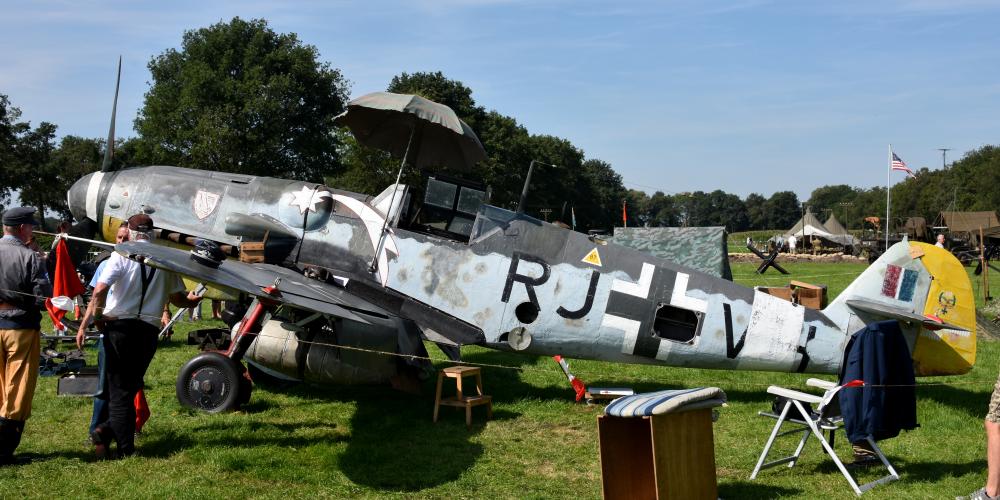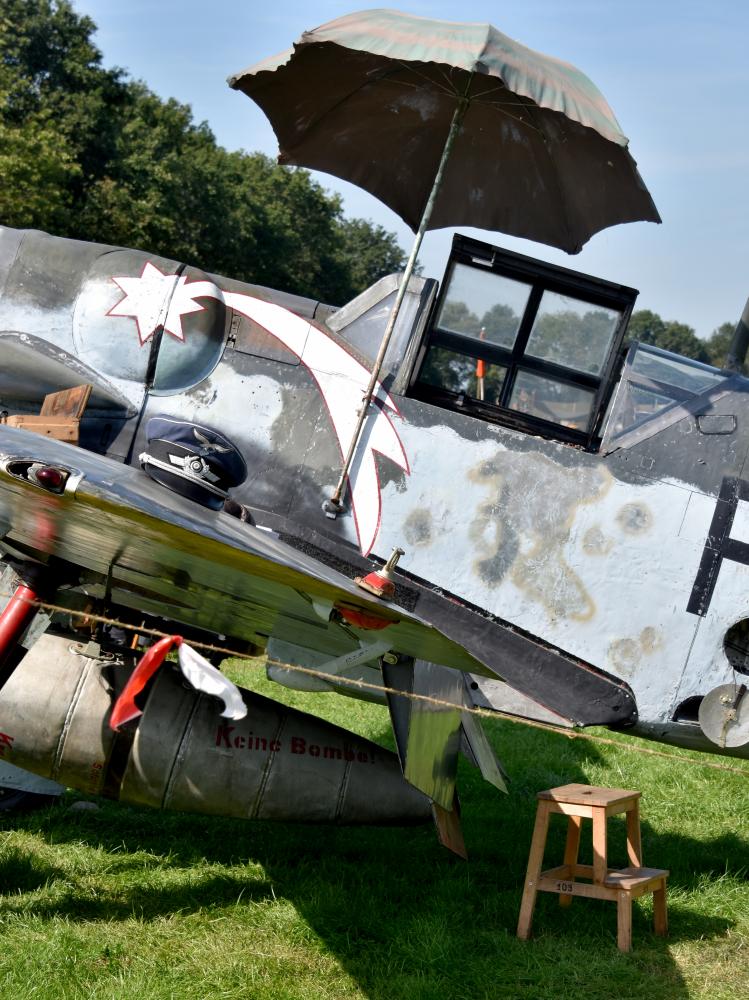|
|
Messerschmitt
Messerschmitt AG was a German share-ownership limited, aircraft manufacturing corporation named after its chief designer Willy Messerschmitt from mid-July 1938 onwards, and known primarily for its World War II fighter aircraft, in particular the Bf 109 and Me 262. The company survived in the post-war era, undergoing a number of mergers and changing its name from Messerschmitt to Messerschmitt-Bölkow-Blohm before being bought by Deutsche Aerospace (DASA, now part of Airbus) in 1989.
In February 1916, the south German engineering company MAN AG and several banks purchased the unprofitable aircraft builder Otto-Flugzeugwerke, starting a new company, Bayerische Flugzeugwerke AG (BFW). Willy Messerschmitt joined the company in 1927 as chief designer and engineer and formed a design team.
One of the first designs, the Messerschmitt M20, was a near-catastrophe for the designer and the company. Many of the prototypes crashed, one of them killing Hans Hackmack, a close friend of Erhard Milch, the head of Deutsche Luft Hansa and the German civil aviation authorities. Milch was upset by the lack of response from Messerschmitt and this led to a lifelong hatred towards him. Milch eventually cancelled all contracts with Messerschmitt and forced BFW into bankruptcy in 1931. However, Messerschmitt's friendship with Hugo Junkers prevented a stagnation of the careers of him and BFW, which was started again in 1933. Milch still prevented Messerschmitt's takeover of the BFW until 1938, hence the designation "Bf" of early Messerschmitt designs.
Messerschmitt promoted a concept he called "light weight construction" in which many typically separate load-bearing parts were merged into a single reinforced firewall, thereby saving weight and improving performance. The first true test of the concept was in the Bf 108 Taifun sports aircraft, which would soon be setting all sorts of records. Based on this performance the company was invited to submit a design for the Luftwaffe's 1935 fighter contest, winning it with the Bf 109, based on the same construction methods.
During World War II Messerschmitt became a major design supplier, the Bf 109 and Bf 110 forming the vast majority of German fighter strength for the first half of the war.
For ten years after World War II, the company was not allowed to produce aircraft.
On 6 June 1968, Messerschmitt AG merged with the small civil engineering and civil aviation firm Bölkow, becoming Messerschmitt-Bölkow. The following May, the firm acquired Hamburger Flugzeugbau (HFB). The company then changed its name to Messerschmitt-Bölkow-Blohm (MBB). In 1989 MBB was taken over by DASA. DASA later operated as "EADS Germany", which is now Airbus.
Messerschmitt Bf 109
The Messerschmitt Bf 109 is a German World War II fighter aircraft that was, along with the Focke-Wulf Fw 190, the backbone of the Luftwaffe's fighter force. The Bf 109 first saw operational service in 1937 during the Spanish Civil War and was still in service at the dawn of the jet age at the end of World War II in 1945. It was one of the most advanced fighters of the era, including such features as all-metal monocoque construction, a closed canopy, and retractable landing gear. It was powered by a liquid-cooled, inverted-V12 aero engine. From the end of 1941, the Bf 109 was steadily being supplemented by the Focke-Wulf Fw 190. Through constant development, the Bf 109 remained competitive with the latest Allied fighter aircraft until the end of the war.
The Bf 109 was commonly called the Me 109, most often by Allied aircrew and among the German aces, even though this was not the official German designation.
The Hispano Aviación HA-1109 and HA-1112 are license-built versions of the Messerschmitt Bf 109G-2 built in Spain during and after World War II.


Messerschmitt Bf 109G-5, registration 15343, built 1943, serial number ????
Ede, Netherlands, 23 August 2019
|

